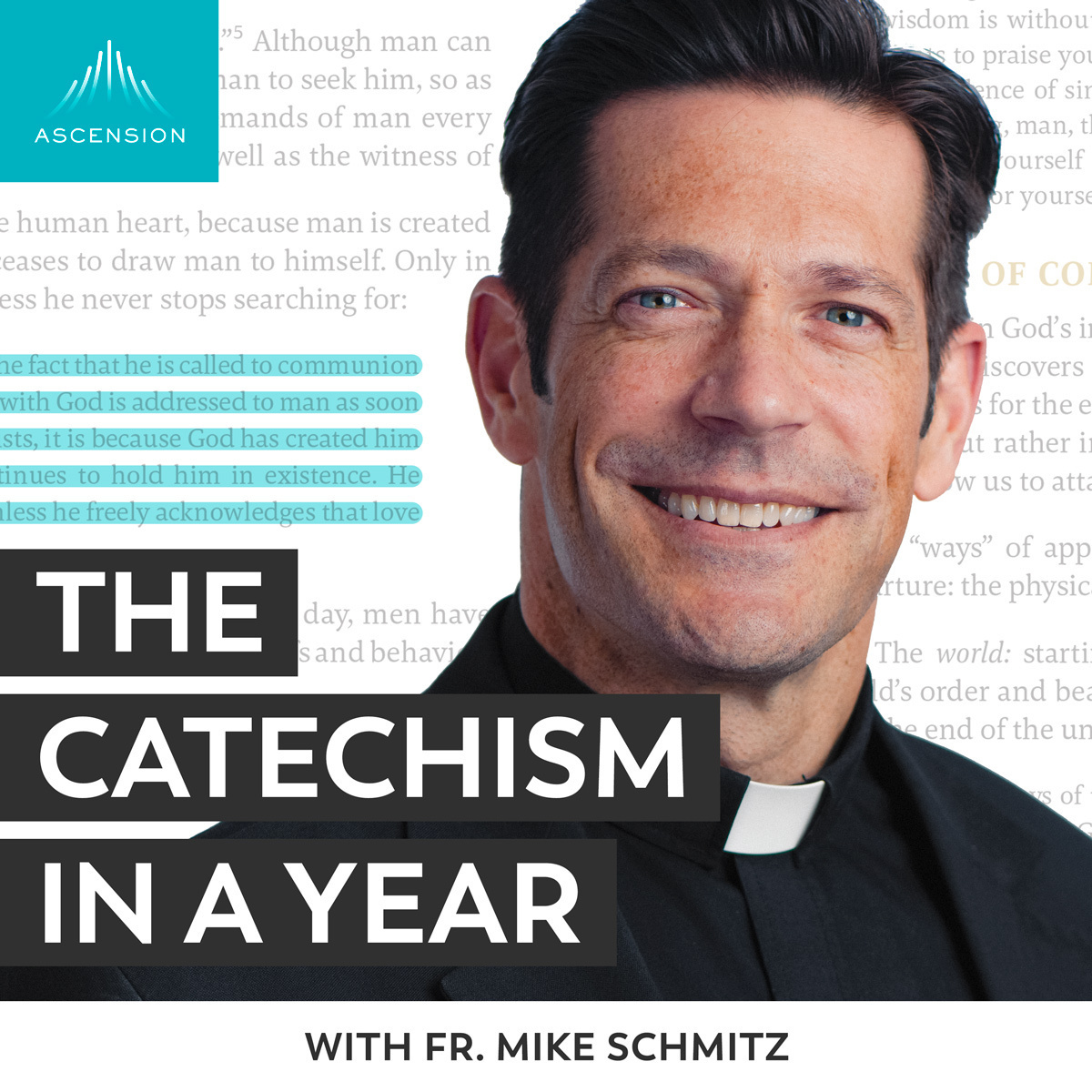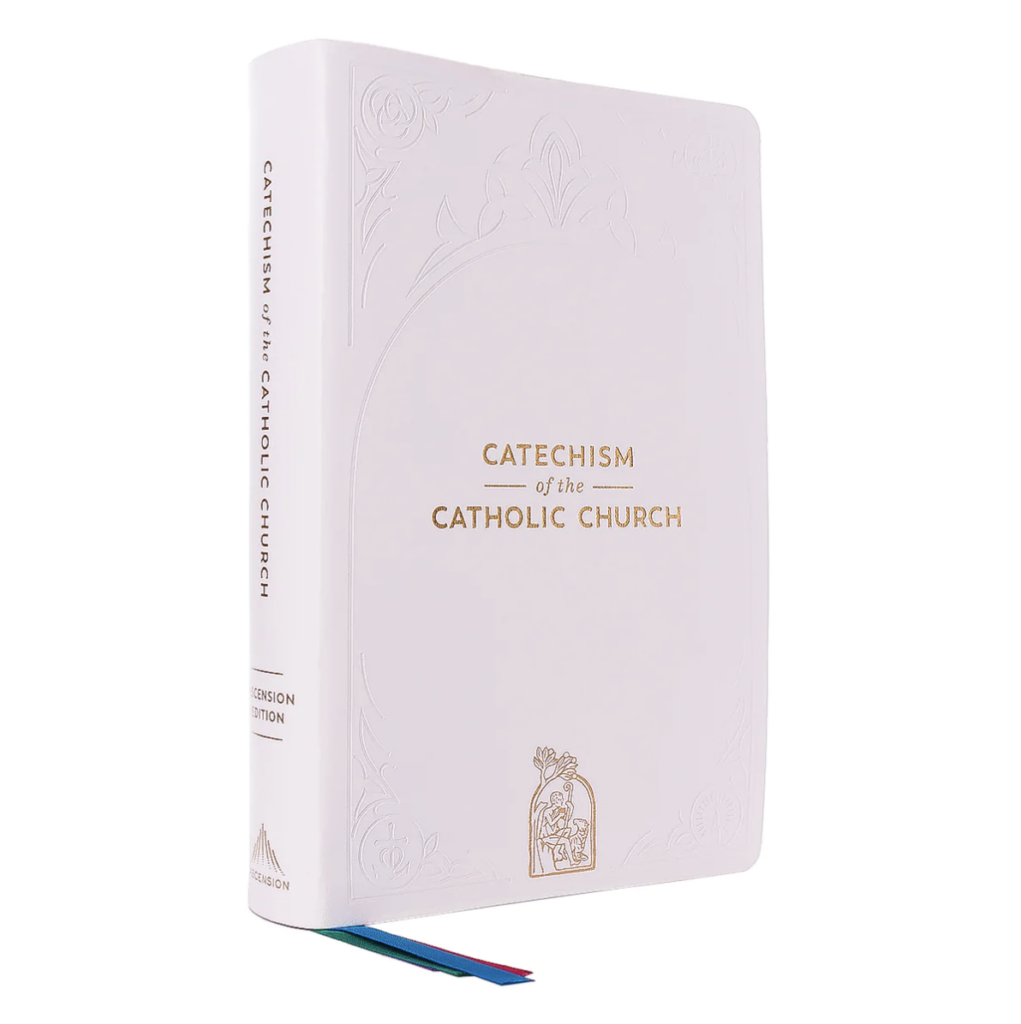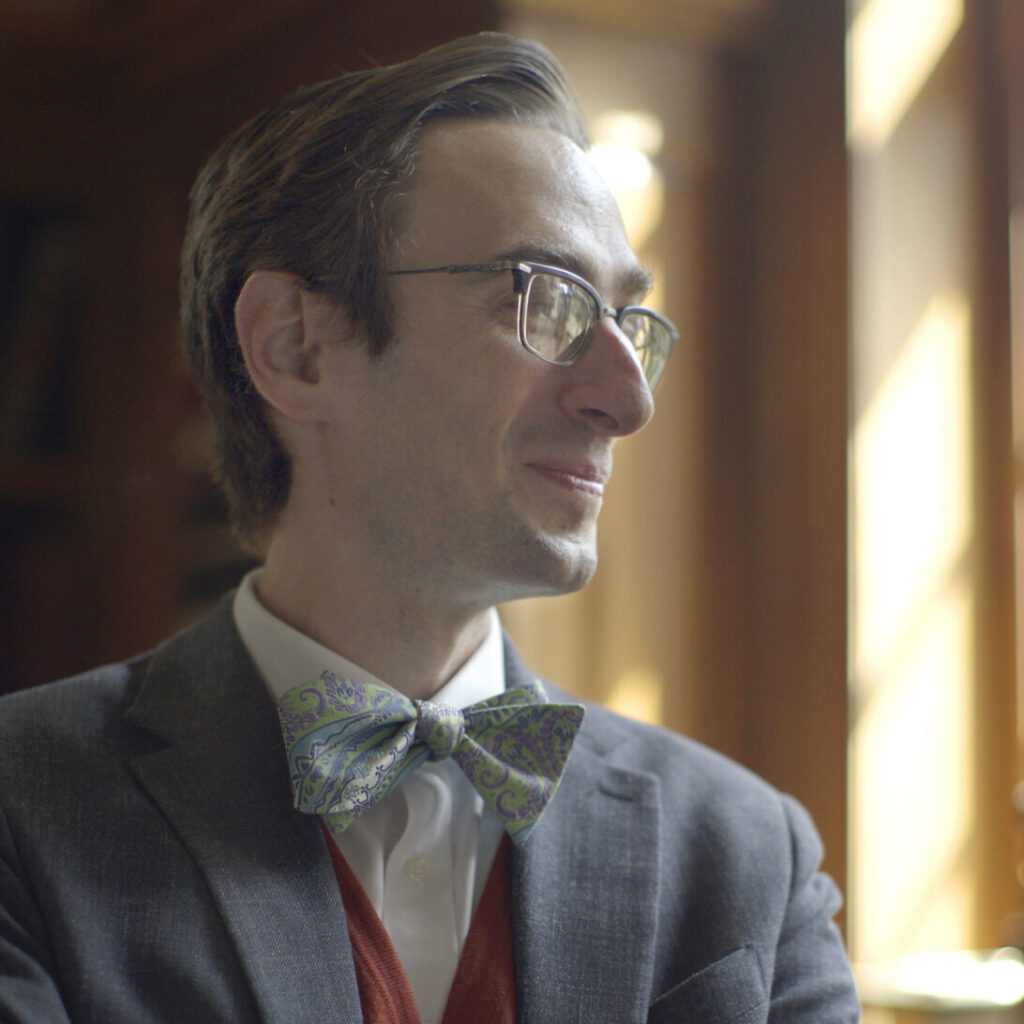This is the third part of a series that follows The Catechism in a Year podcast. Dr. Matthew Minerd journeys with us and presents a “travel guide” through the major themes of the Catechism of the Catholic Church.
Need to catch up? You can find the other parts of the series here: The Catechism: A Guide for the Christian Life and Divine Revelation
Although human reasoning can demonstrate the existence of God, this conclusion can only be reached by a few fortunate souls, following years of reflection, and even then, intermingled with errors. Therefore, God, in his great mercy, stooped down to our weak human condition. Even after the cataclysm of the great Flood, at the tower of Babel, man said, “let us build ourselves a city, and a tower with its top in the heavens, and let us make a name for ourselves” (Genesis 11:4, emphasis added). God, however, chose to speak his response to Noah’s son Shem (which means “name”) and his line, from whom would come the three great patriarchs Abraham, Isaac, and Jacob. They would form a particular people, Israel, through whom all peoples would find the blessings of the Most High (see Genesis 12:1–3).
The Name of God
Groaning under the yoke of slavery in Egypt, the people of Israel called out to the Lord, and he “heard their groaning, and God remembered his covenant with Abraham, with Isaac, and with Jacob” (Exodus 2:24). In fulfillment of his will, he called Moses, with whom he spoke “as a man speaks to his friend” (Exodus 33:11). To Moses, God would reveal his unspeakable name, YHWH, “I Am Who Am” (see Exodus 3:14).
This mysterious name definitively revealed to his people that their God is the transcendent Lord, not to be manipulated like the gods of the nations but worshiped as the One upon whom all things depend, without whom nothing would exist, the Perfect One who needs nothing but who is needed by all creatures, who are drawn to him by “bands of love” (see Hosea 11:4). From that day to the end of time, mankind—first in Israel, but in Christ, in all men and women—could say:
“The LORD, our God is one LORD; and you shall love the LORD, your God with all your heart, and with all your soul, and with all your might.”
Deuteronomy 6:4–5
The Transcendent God
Philosophical wisdom has, on a few occasions, reached the truth that there is one Source of all being, a Source that is good, beautiful, true, and transcendent. However, without supernatural faith, we could never reach such a conclusion as revealed in the words,
“For what great nation is there that has a God so near to it as the Lord our God is to us, whenever we call upon him.”
Deuteronomy 4:7
Thus, at the center of our faith is this first great credibilium: “I believe in One God.” There are many “names” (or attributes) that can be said of God: Holy, Mighty, Immortal, Eternal, Infinite Beauty, All-Knowing, Omnipresent, Loving, Merciful, Just, and so forth. All of these names, however, are said of him who is “beyond naming.” God’s goodness is infinitely beyond the goodness of any creature. God’s being is infinite and transcendent, whereas all creatures are finite and dependent. God’s beauty is unchanging and eternal splendor, leading St. Augustine to say in awe:
“Late have I love you, O beauty so ancient yet ever new!”
Therefore, when we speak of God, we must join Job in saying:
“I have uttered what I did not understand, things too wonderful for me, which I did not know.”
Job 42:3
How mysterious God is: his beauty is his Godhead; his Goodness is his Godhead; his Knowledge is himself; his Being is uncreated! We are all like Elijah, who shrouded his face before the divine presence (see 1 Kings 19:13).

Listen to Fr. Mike’s new podcast, The Catechism in a Year!
If you have ever wanted to understand what it means to be Catholic and allow those truths to shape your life—this podcast is for you!
A Personal God
How true all of this is when we say that God is “personal.” Applied to God, we discover that the meaning of this word is stretched beyond anything we can ever experience in our relations with another human person. At the beginning of Scripture, we are told that God walked in intimacy with our Adam and Eve in the Garden (see Genesis 3:8), as well as with Enoch in the early days of man’s history (see Genesis 5:22–24). Jacob struggled with an angel of the Lord and received the name Israel, which means, “He who wrestles with God” (Genesis 32:23–32). Moses spoke with God as with a friend (see Exodus 33:11). The prophets spoke the words of the Lord and sometimes even disputed sharply with him (see Jeremiah 20:7 and Jonah 4). And the Psalms express the prayers of the Israelites complaining to God, praising him, and beseeching him. So one can truly say of the faithful people of Israel:
“Truly God is with you.”
Isaiah 45:14
A Great Mystery
Nonetheless, the personal nature of God is more mysterious than anything we could have ever suspected. The one true God is actually three Persons. This awe-inspiring mystery was proclaimed by Jesus throughout the Gospels. It presses upon all who know Jesus as he truly is:
“I came from the Father and have come into the world… When the Counselor comes, whom I shall send to you from the Father, even the Spirit of truth, who proceeds from the Father, he will bear witness to me.”
John 16:28; 15:27
This is the mystery of the Holy Trinity: one God in a communion of three Persons: Father, Son, and Holy Spirit.
Each of the divine Persons are co-equal in the Godhead. The Father is God. The Son is God. The Holy Spirit is God. They are distinct from each other, while sharing the same divine nature. The Son and the Spirit hold all that they are from the Father, but what they “hold” is the very Godhead itself. There is no subordination but only an order of procession: the Son is from the Father and the Holy Spirit is from the Father and the Son, understood as meaning from the Father and through the Son, for the Father is ultimately the “principle without principle” in the Trinity, he who is “unbegotten,” the first of the three divine Persons.
Processions
How great were the theological struggles of the first Christian centuries as the Fathers of the Church strove to articulate this mystery that had been revealed by Jesus. The great early ecumenical councils clarified the revealed truth that in the very depths of God there proceeds a Word, who is God, and yet comes forth from the Father:
“In the beginning was the Word, and the Word was with God, and the Word was God.”
John 1:1
In Christ, we see that the Father expresses himself in the Word, who “reflects the glory of God and bears the very stamp of his nature” (Hebrews 1:3), united in a manner that the Council of Nicaea would come to define as homoousios, “consubstantial”—that is, “one in substance.” So too, through this Word the Father breathes forth Love. Thus, in the third Person, the Holy Spirit, the Love of God is “spirated” by the Father through the Son.
This is the profound meaning of the first credibilium: the one God exists as a communion of three Persons, who know with one and the same divine knowledge, love with one and the same divine love, and share the one divine existence that was revealed to the people of Israel. How intimate this shared life! The Son proceeds from the Father, without ever leaving him, for both Father and Son are the one God. So, too, the Spirit. Where the Son is, there also is the Father and the Spirit; where the Spirit is, there too is the Father and the Son. The meaning of the “mission,” the sending, of the Son and that of the Spirit is to lead all things back to the Father in the unity of the One and undivided Trinity.
All three Persons of the Trinity are active in every divine act. The Father, Son, and Holy Spirit are all active in each fiber of creation and sanctification. From the Father to the Son to the Spirit, all things come to creation:
“Every good endowment and every perfect gift is from above, coming down from the Father of lights.”
James 1:17
So too all things will return, in the Spirit, through the Son, to the Father in the blessed eternity of heaven:
“For as in Adam all die, so also in Christ shall all be made alive. But each in his own order: Christ the first fruits, then at his coming those who belong to Christ. Then comes the end, when he delivers the kingdom to God the Father after destroying every rule and every authority and power.”
1 Corinthians 15:22–24

Understand the Catholic Faith Like Never Before
This exclusive, specially designed Ascension edition of the Catechism clearly shows the ancient roots of the Faith and helps Catholics integrate the fullness of Catholic teaching into their daily lives.

Dr. Matthew Minerd is a Ruthenian Catholic, husband, and father, serving as a professor of philosophy and moral theology at the Byzantine Catholic Seminary of Saints Cyril and Methodius in Pittsburgh. His academic and popular writing has been published in the journals Nova et Vetera, The American Catholic Philosophical Quarterly, The Review of Metaphysics, Études Maritainiennes, Downside Review, and Homiletic and Pastoral Review. He has also served as a translator or editor for volumes published by The Catholic University of America Press, Emmaus Academic, and Cluny Media. He is the author of Made by God, Made for God: Catholic Morality Explained.






0 Comments